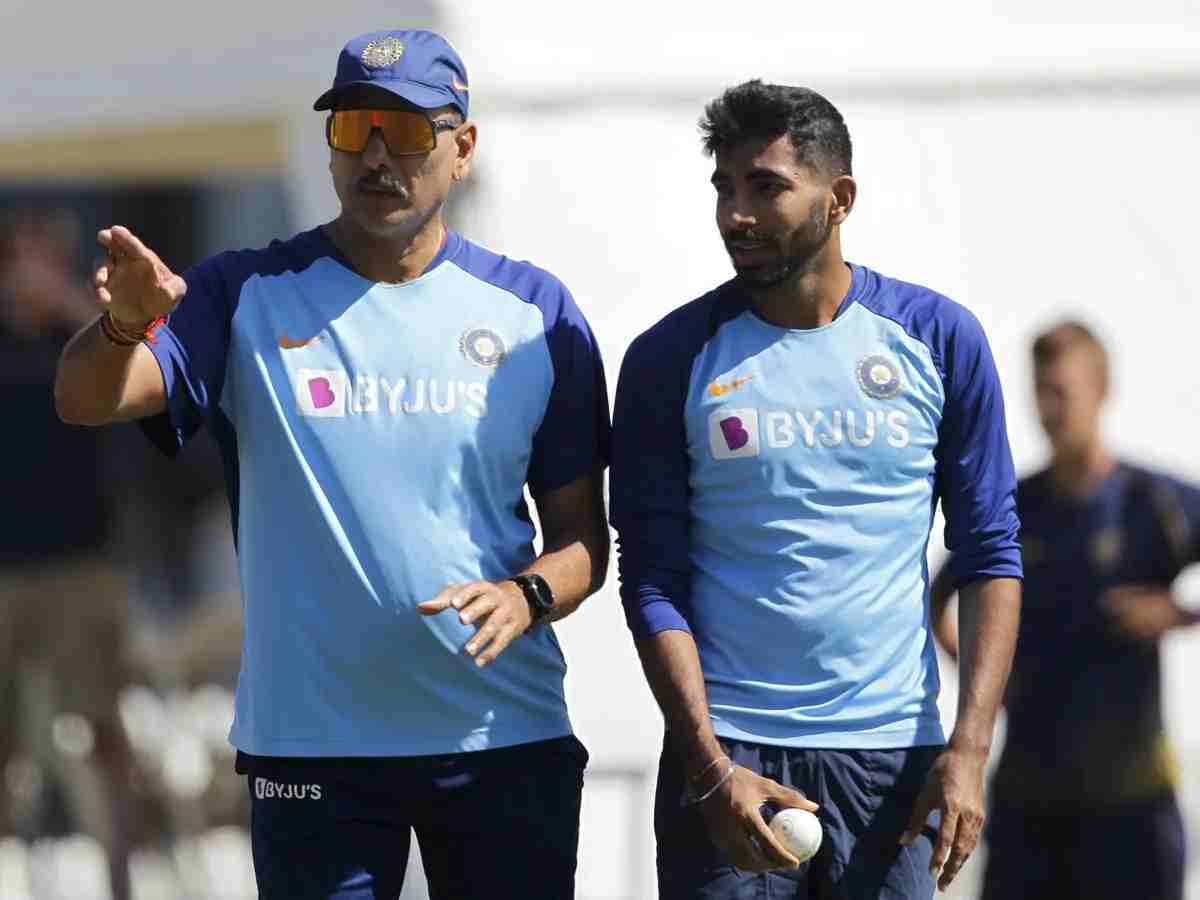Ravi Shastri, former head coach of the Indian cricket team, has expressed concern over the potential rush to recover ace fast bowler, Jasprit Bumrah, ahead of the ODI World Cup later this year. Amid reports of Bumrah’s potential play in the T20Is against Ireland in August, Shastri counsels caution. He has firmly advised against repeating Pakistan’s mistake with speedster Shaheen Afridi, who, after being rushed back for the T20 World Cup, missed competitive cricket for over four months.
Shastri, a stalwart of Indian cricket, is no stranger to the high stakes of the game. His tenure as head coach saw the rise of several young talents, including Bumrah. The ace fast bowler has since become a cornerstone of the Indian cricket team, known for his uncanny ability to deliver yorkers at will.
Speaking exclusively to The Week, Shastri emphasized the thin line between rushing Bumrah back to competitive cricket and managing his fitness effectively. He stated, “He (Bumrah) is a very important cricketer. But if you rush him for the World Cup then you might lose him for four months later on, much like Shaheen Afridi. So there’s a thin line and it needs to be thought about.”
Shastri’s warning draws attention to a prevalent issue in cricket: managing player injuries. In the pursuit of glory, teams sometimes push their players too hard, often leading to detrimental long-term effects. This trend was evident in the case of Pakistan’s Shaheen Afridi, whose rushed return led to an extended break from competitive cricket.
You may also read:
- Suresh Raina recalls a hilarious banter with Yuvraj Singh when he made his debut for the Indian Cricket Team
- Ahmed Shehzad says that India never had any threatening bowler
Ravi Shastri advises BCCI to not rush Jasprit Bumrah ahead of the World Cup

Shaheen Afridi, much like Bumrah, is a pivotal part of his national team. His absence due to an injury setback during the T20 World Cup severely impacted Pakistan’s bowling unit. Shastri clearly suggests that India should avoid such a scenario with their star bowler.
Instead, Shastri proposes a more measured approach. While the World Cup is a significant event, player health must not be compromised. Balancing between immediate goals and long-term player availability requires careful planning. A fit and ready Bumrah, even if it means waiting a bit longer, is far more valuable than risking further injury.
The former coach’s wisdom underscores the importance of player welfare in cricket. Fast bowlers, like Bumrah, are particularly vulnerable to injuries due to the physically demanding nature of their roles. Hence, their fitness needs to be meticulously managed to ensure their longevity in the sport.
Shastri’s cautionary advice serves as a reminder to India’s cricket management that the rush to win shouldn’t jeopardize a player’s career. Bumrah’s journey to recovery should be well-calibrated, ensuring his fitness for the long haul. This approach will not only safeguard Bumrah’s health but also fortify the strength of Team India in the years to come. The key, as Shastri puts it, is understanding the thin line between the urgency of now and the caution required for the future.












